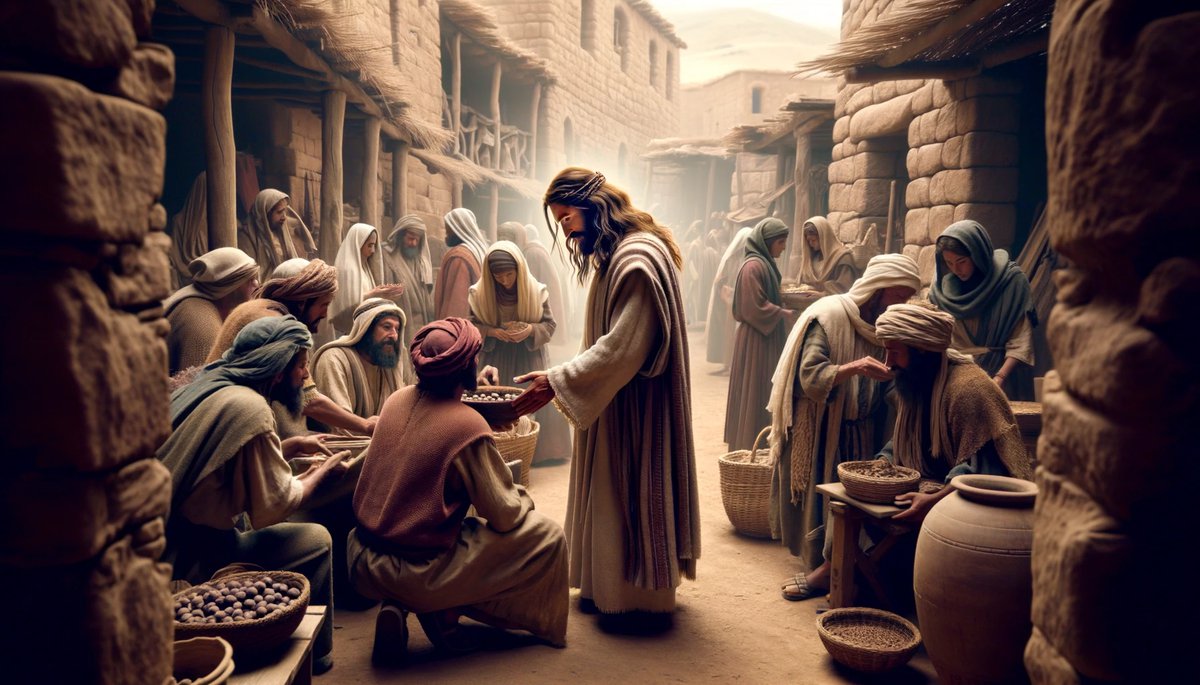Home>Christian Videos>Bible Stories>According To The Gospels, How Many People Did Jesus Raise From The Dead?


Bible Stories
According To The Gospels, How Many People Did Jesus Raise From The Dead?
Published: March 6, 2024
Peter Smith, Editorial Director at Christian.net, combines deep insights into faith, politics, and culture to lead content creation that resonates widely. Awarded for his contributions to religious discourse, he previously headed a major organization for religious communicators, enhancing dialogue on faith's societal impacts.
Discover the biblical accounts of Jesus raising multiple individuals from the dead in the Gospels. Explore these powerful stories and their significance. Gain insights into these miraculous events.
(Many of the links in this article redirect to a specific reviewed product. Your purchase of these products through affiliate links helps to generate commission for Christian.net, at no extra cost. Learn more)
Table of Contents
Introduction
According to the Gospels, Jesus performed several miraculous acts during his time on earth, including the raising of individuals from the dead. These extraordinary events are recorded in the New Testament and hold significant importance in Christian theology. The raising of the dead by Jesus is a demonstration of his divine power and compassion, illustrating his ability to conquer death and offering hope to believers. In this article, we will explore the accounts of the raising of the dead as documented in the Gospels, shedding light on the individuals whom Jesus brought back to life and the profound impact of these miraculous occurrences.
Read more: How Many People Believe In Jesus Christ
The Raising of Jairus' Daughter
The raising of Jairus' daughter is a poignant account found in the Gospels of Mark, Matthew, and Luke. Jairus, a synagogue leader, approached Jesus and pleaded for him to come and heal his dying daughter. As they journeyed to Jairus' home, messengers arrived with the heartbreaking news that the girl had passed away. Despite the mournful atmosphere, Jesus encouraged Jairus to have faith and proceeded to the house. Upon arrival, Jesus took the girl's hand, spoke the words "Talitha koum," which means "Little girl, I say to you, get up," and miraculously restored her to life. This miraculous raising of Jairus' daughter not only brought immense joy to her family but also demonstrated Jesus' authority over death itself, foreshadowing his own resurrection and offering a glimpse of the eternal life he offers to believers.
- The account of Jairus' daughter's raising showcases Jesus' compassion and willingness to respond to the desperate pleas of those in need.
- The event emphasizes the power of faith and the transformative impact of Jesus' miraculous interventions.
- The raising of Jairus' daughter serves as a powerful testament to Jesus' ability to bring hope and restoration in the midst of despair and death.
The Raising of the Widow's Son at Nain
The Gospel of Luke recounts the remarkable event of Jesus raising the widow's son at Nain. As Jesus approached the town of Nain, he encountered a funeral procession for the only son of a widow. The situation was particularly heart-wrenching as the widow not only grieved the loss of her son but also faced the prospect of destitution and isolation without a male relative to provide for her. Filled with compassion, Jesus approached the grieving mother and uttered the comforting words, "Don't cry." He then touched the bier, commanding the young man to arise. In an awe-inspiring display of divine power, the young man sat up and began to speak, to the astonishment of all present. This extraordinary act of raising the widow's son at Nain not only restored life to the deceased but also brought immeasurable joy to his mother and the entire community. The profound impact of this miraculous event reverberated throughout the region, solidifying Jesus' reputation as a compassionate and mighty miracle-worker.
- The account of the widow's son at Nain showcases Jesus' deep empathy for those who are suffering and marginalized.
- This miraculous event underscores Jesus' authority over death and his ability to bring hope and restoration to seemingly hopeless situations.
- The raising of the widow's son at Nain serves as a powerful testament to Jesus' divine nature and his willingness to intervene in human affairs with compassion and power.
The Raising of Lazarus
The account of the raising of Lazarus is one of the most profound and stirring narratives in the Gospels, found in the Gospel of John. Lazarus, a dear friend of Jesus, had fallen gravely ill, prompting his sisters, Mary and Martha, to send for Jesus. However, Jesus intentionally delayed his arrival, allowing Lazarus to succumb to death. Upon reaching Bethany, Jesus was met with profound grief and anguish as both sisters expressed their belief that if Jesus had been present, their brother would not have died. Jesus, deeply moved by their sorrow and the mourning of those present, approached the tomb where Lazarus had been laid. In a moment that showcased both the humanity and divinity of Jesus, he wept, demonstrating his empathy for the pain of loss. Then, with a commanding voice, Jesus called out, "Lazarus, come out!" In an astounding display of divine power, Lazarus emerged from the tomb, still bound in burial cloths. This miraculous event not only restored life to Lazarus but also served as a profound revelation of Jesus' authority over death itself. The raising of Lazarus stands as a pivotal moment, foreshadowing Jesus' own impending resurrection and solidifying his identity as the resurrection and the life.
- The raising of Lazarus demonstrates Jesus' deep emotional connection to his friends and his genuine empathy for human suffering.
- This extraordinary event serves as a powerful testament to Jesus' authority over death and his ability to bring forth life even in the most hopeless of circumstances.
- The raising of Lazarus not only brought immense joy to his loved ones but also served as a compelling sign of Jesus' divinity and his ultimate triumph over death.
Conclusion
The accounts of the raising of individuals from the dead as documented in the Gospels offer profound insights into the divine nature of Jesus and his unparalleled ability to conquer death. These miraculous events not only brought immeasurable joy to the families and communities involved but also served as compelling demonstrations of Jesus' compassion, power, and authority. The raising of Jairus' daughter, the widow's son at Nain, and Lazarus stand as enduring testimonies to the transformative impact of Jesus' miraculous interventions, offering hope and restoration in the face of despair and death. These accounts continue to inspire and strengthen the faith of believers, affirming the central message of the Gospel – that in Jesus, there is the promise of eternal life and the assurance that death has been ultimately defeated.















